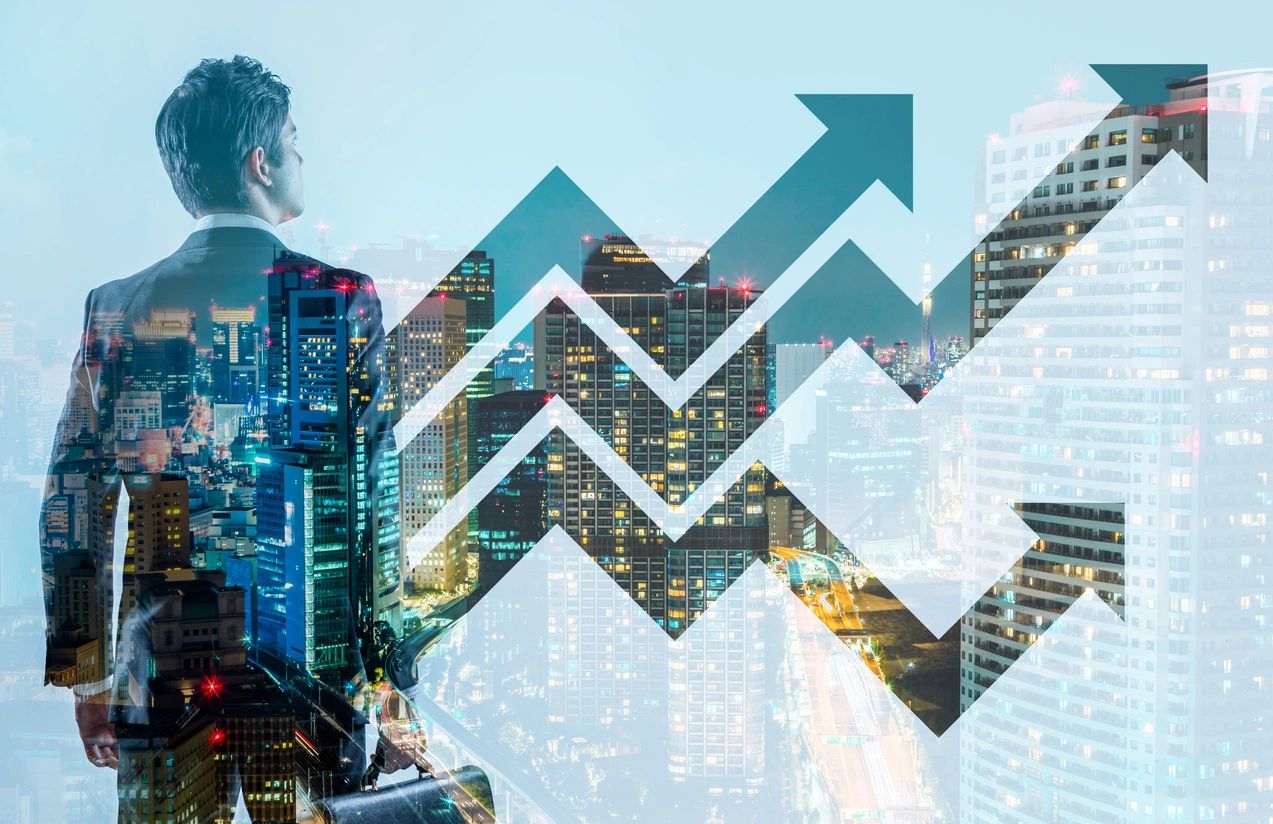It’s virtually impossible to conduct any form of business these days without the use of technology. At the current pace of technological development, more advanced ways of doing business are constantly being revealed. Below we’ve highlighted just some of the most promising business technologies that are coming our way.
Artificial intelligence (AI)
Artificial intelligence (AI) refers to the ability of machines to understand, learn and make decisions, in a similar way to the human brain. AI-driven technologies allow computers to shift through substantial amounts of data to perform near-limitless tasks while applying predictive analysis, rationalisation, and problem-solving. AI can sift through more data than a human being could ever process, and can identify and analyse patterns, allowing for better decision making by businesses. Below are some examples of the potential benefits AI can bring to businesses:
Improving customer relationships
- Businesses can improve their customer services by adopting AI to speed up their internal processes, automating systematic and simple tasks with machine learning algorithms.
- AI-powered sentiment analysis could help detect customer temperament accurately without human assistance to accelerate suitable resolutions.
- AI could be used to power a conversational user interface like a chatbot. They could also produce predictive insights that allow your organisation to identify and recommend relevant related products or services.
Cybersecurity
- The detection abilities of AI can help with cybersecurity – AI will be able to monitor huge data sets from your systems in real-time, allowing it to track and flag potentially fraudulent behaviour.
- AI can analyse relationships between threats like malicious files, suspicious IP addresses or insiders in seconds or minutes.
- AI can provide curated risk analysis, reducing the time security analysts take to make critical decisions and remediate threats.
Virtual Reality
Virtual reality (VR) has come a long way since its inception. Modern virtual reality technology can now deliver realistic experiences, and the cost of hardware and software has reduced considerably. As virtual reality continues to grow and expand to different industries, it has the potential to have a major impact on business including:
- Retail: For in-store experiences, businesses could use VR to allow users to try products before they buy them. In online retail, VR could provide shoppers with a more realistic representation of the product they are buying.
- Enhanced Training: VR could be used to create better training programs for employees. Instead of having new employees read a training manual or watch videos, you can create a virtual experience that allows a new recruit to experience different parts of the job more realistically. This would be especially beneficial for jobs that may be hazardous to the employee or other people in the workplace.
Blockchain
Blockchain technology has made significant strides in its development and widespread adoption in recent years, and there’s no sign of it slowing down.
Blockchain is still not widely or systematically understood and is mostly known as the technology powering cryptocurrency such as bitcoin. However this is far from its only application.
Non-fungible tokens (NFTs)
Non-fungible tokens (NFTs) are a revolutionary new way of buying and selling digital assets that represent real-world items. All NFTs are unique and cannot be replaced or swapped. They can only be purchased, sold, traded, or given away by the original owner/creator of that asset. NFTs could power a whole new wave of digital collectibles, from rare artwork to one-of-a-kind accessories.
Digital Identity
Currently we use passwords and authentication questions to prove who we are online. Blockchain could replace this system with a digital identity that is simple, safe and secure. Your digital identity would be based on a unique random set of numbers assigned to each user on a blockchain network. This would mean your identity cannot be hacked or changed without access to your private key, which would make it extremely more secure than our current password practices.
Health
Providers of health care could also use blockchain technology to exchange data with each other securely. This could improve the speed of diagnosis whilst also protecting patient privacy.
Drones
There has been talk for some time now of a future where drones would seamlessly deliver goods to our doors. Drone delivery is meant to provide a sustainable option for shipping – for example, rather than a single driver dropping off packages at dozens of homes, separate drones can simultaneously transport goods.
Amazon announced back in 2013 that it was undertaking an experimental drone delivery service, however to date this hasn’t transpired into mainstream deliveries. That’s not to say that drone deliveries aren’t happening, they are, just by lesser known companies. According to research by McKinsey & Co, there have been over 660,000 commercial drone deliveries to customers over the past three years. Approximately 2,000 drone deliveries are estimated to be occurring each day across the world and it’s predicted that there will be close to 1.5 million deliveries in 2022.
Drone deliveries are currently happening in Australia – Wing Aviation was approved to operate ongoing drone grocery and restaurant deliveries in North Canberra (ACT) and Logan (QLD) in Australia. In 2021, Wing completed just over 100,000 drone deliveries in Australia and in the first two months of 2022, they surpassed 30,000.
While city skies crowded with delivery drones might be far away, the groundwork is currently being laid out. Owned by Alphabet, the parent company of Google, Wing has huge resources. New drone regulations are being written, and Wing is setting itself up to be the backbone of a new aerial infrastructure.
5G: Powering the new technologies
The launch of 5G and the rise of AI offers untold potential for businesses. 5G is the fifth generation of mobile wireless communication technology – an upgrade from 4G. By using shorter, higher-frequency bands of the radio spectrum, 5G offers greater load capacity, faster speeds and lower latency.
Technology-wise, 5G has a number of characteristics that can power businesses by increasing productivity and enabling better customer experiences. Combined with other technologies such as the cloud, Internet of Things (IoT) and edge computing, 5G has the potential to change how business is done and how entire industries operate.
The 5G characteristics include:
Faster speeds: Higher connection speed will allow for up to 10 times faster downloads and upload speeds at a bare minimum.
Higher device capacity: A network can only handle a predefined number of devices that can transmit data concurrently. However, businesses are increasingly using more devices, all of which are transferring more data. While the 4G network isn’t built to handle this, 5G can and will allow for large, complex IT infrastructures that can host a virtually limitless number of devices undertaking simultaneous data transfer.
Reliable connections: 5G employs multi-access edge computing technology that distributes large data loads and decongests networks through localised computing. This ensures that connections are not broken or interrupted when usage spikes. As a result, cloud workloads, software automation, analytics and more will run smoother.
Lower latency: Latency is the time gap between when a data packet is sent and when it is received and acknowledged. In other words, latency is the time that passes between when you give your machine an instruction and when it does it.
Essentially, 5G will make the world a smaller and more connected place. It will enable higher-speed communication on more devices with less latency. It will also allow for organisations to deploy their own “private” 5G infrastructure, allowing cloud applications and infrastructure to behave as if they were more local.
The 5G transformation won’t be as simple as switching to a new network provider. Forward-thinking leaders need to capitalise on the rollout of 5G networks by laying the groundwork for their company.
Strategising for the future
Technology is always evolving and improving. Partnering with an external IT management company such as Neo Technologies will help you to examine your organisation’s mission and goals and to plan for near-term, mid-term, and long-term development goals, making room for new technologies. We’ll help you understand where your network is now and to determine what you need to do to optimise for 5G.
With over 25 years experience in designing and deploying enterprise-class networks, Neo Technologies has the expertise required to help organisations prepare for the future. Whether your business is seeking to leverage 5G’s superior bandwidth for IoT applications, or you’re looking to ensure your operations are secure, connected and compliant, we can provide the solutions to ensure a seamless transition into the next era of wireless connectivity. Contact us on 1300 661 832 to learn more about ways we can take your business into the future.



